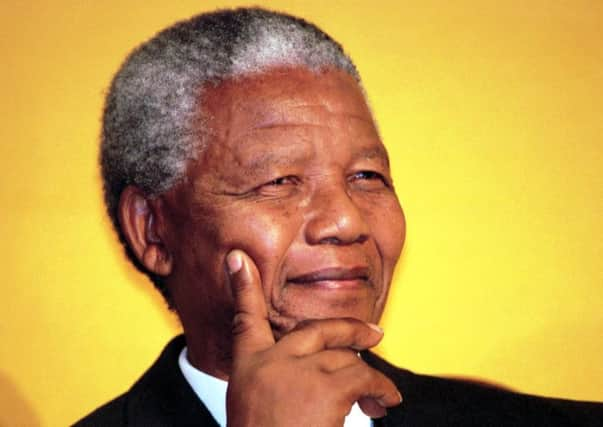Brexit: Talk of ‘traitors’ and ‘Quislings’ is un-Christian – Murdo Fraser


In his magnificent new book, Dominion: The Making of the Western Mind, the historian Tom Holland argues that the greatest influence on modern thinking is Christianity. Concepts that we now treat as universal, and take for granted, such as the essential dignity of life, innate human rights, and the need to care for others less fortunate than ourselves, are widely held only because they derive from Christian teaching.
Despite the sophistication of their societies, and their interest in philosophy, the ancient Greeks and Romans had no belief in notions such as equality under the law. These were, after all, civilisations built on conquest and slavery. It was only with the coming of Christianity that attitudes started to change.
Advertisement
Hide AdAdvertisement
Hide AdWhen the Apostle Paul wrote to the Galatians, “There is neither Jew nor Greek, there is neither bond nor free, there is neither male nor female, for you are all one in Christ Jesus”, this was a revolutionary statement of Earth-shattering proportions. Never before had the world heard a message that everyone was to be treated equally; never before had any religion been open to all, regardless of race, sex, or place in society.
Values that we hold in common today, whether Christian or not, such as the need to care for the less fortunate, to “love our neighbour as ourselves”, derive directly from Christ’s teachings and Paul’s letters. Along with this goes a warning against excess, a need for sobriety and self-control.
Paul wrote to the citizens of Philippi: “Let your moderation be known unto all men.” This particular thought is not necessarily a Christian one. The saying “Observe due measure; moderation is best in all things” is attributed to the Greek poet Hesiod from around 700BC. But whether its roots are Greek or Christian, it is a sentiment as relevant today as it was centuries ago.
We are in an era when it looks as if the common ground in politics is being deserted. Everywhere we see a drive to extremes, with a rise in identity politics. Increasingly voters are in camps, either Leavers or Remainers, unionists or nationalists, left or right, with little space for subtlety in between. It is the easiest thing in the world for a politician to plant a flag and say “Here I stand, no surrender!”; to dismiss, even ignore, the arguments of others; and to refuse to countenance any compromise. This unwillingness to bend, to show grace, and to see the other argument, blights our politics and divides our society.
History recognises as truly great figures not those who dug themselves into trenches, but those who were prepared to reach out across the divides. Whether it is figures like Nelson Mandela, David Trimble or even Martin McGuinness, leaders who were prepared to climb down from the barricades and extend the hand of friendship to those who were once bitter enemies are types of the role models that we need today.
This is not a plea for the abandonment of principle or strongly held positions which are supported by evidence. Rather it is a recognition that the greatest advances we make as society are achieved when we are at least prepared to consider the other point of view.
In 1919, Winston Churchill, then Secretary of State for War and Air, warned of the consequences of the punitive terms in the Treaty of Versailles, which imposed enormous reparations on the defeated Germans. Advocating a policy of reconciliation, he argued that a harsh approach would simply increase the fear and hatred between France and Germany, and would lead to another war.
Advertisement
Hide AdAdvertisement
Hide AdWe know today that Churchill was correct. The rise of Hitler could be directly attributed to the treatment of the German nation by the victorious Allies. The history of the 20th century might well have been very different, and much tragedy avoided, had the winners adopted a spirit of forgiveness.
A century later, our challenges are very different from those of that time, and yet in our febrile debates around Brexit we see something of the spirit of 1919: a digging of trenches, a placing of blame, and a refusal to find common ground.
We have had the Prime Minister withdrawing the Conservative whip from 21 MPs who refused to back his line, and we have had a Liberal Democrat Leader, Jo Swinson, saying that the former Prime Minister David Cameron can never be forgiven for calling a Brexit referendum, despite that having been a Liberal Democrat policy for years. That spirit, on all sides, will not help us find a way forward.
It does now look like the Government is very serious, even at this late hour, about finding a new deal with the EU to deliver an orderly Brexit. I sincerely hope that it will be successful. But whatever the terms of any deal, for some it won’t be enough. Those looking to see some political advantage, more interested in promoting conflict than finding common ground, will denounce any deal as imperfect. Words such as ‘traitor’, ‘Quisling’, and ‘collaborator’ will be thrown around.
I hope that politicians on all sides will see the need for compromise. The country is heartily sick of the Brexit debate, not least because of the manner in which it has consumed the energy of the entire political class, leaving so little space for other more vital issues to be addressed.
We need a new spirit of moderation, of generosity, and of putting the national interest and unity before narrow political considerations, because the alternative is yet more bitterness and division. Whether Christian or not, our citizens deserve it of their leaders.
